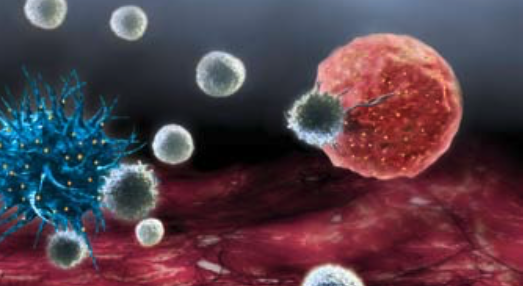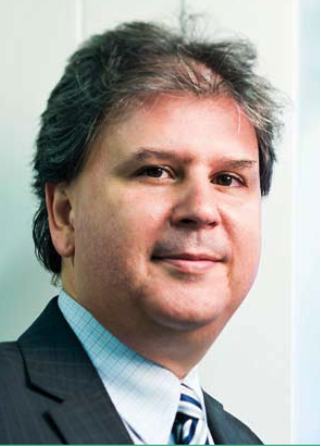Joel Plumas, head of R&D at the French Blood Bank in Grenoble, has studied PDCs for nearly 20 years. Together with Laurent Levy, he decided to found PDC*line Pharma. By the end of 2015, they offered Eric Halioua (serial entrepreneur and former CEO of Promethera Biosciences, Myosix and Murigenitics) to join and scale up the company. The brand- new CEO proposed to develop the company in Belgium, with its rich biotech ecosystem and well-known cell therapy expertise. Today, PDC*line Pharma is operational from its headquarters in Liège as well as from a small research team in Grenoble. The company combines 14 researchers with a seasoned management team and has raised more than € 6 million in equity and loans since its foundation.
A cell line with a dual nature
Central to PDC*line Pharma’s technology is a remarkable cell line of plasmacytoid dendritic cells, named the “PDC*line. ”While PDCs are one of the rarer cell types in the blood, the cell line that PDC*line Pharma relies on is of leukemia origin. The company leverages several advantages of the cell line, attributed to both its plasmacytoid and tumorigenic nature, for immunotherapeutic vaccines.

“The potency of our cell line is extremely high,” explains Eric Halioua. “PDC*line is much more potent to prime and boost antitumor-specific cytotoxic T cells, than conventional vaccines, and improves the response to checkpoint inhibitors. When comparing the capacity for antigen presentation with both allogeneic and autologous myeloid DCs, we found a 20- to 200-fold increase in CD8+ T cell expansion. This shows that our cell line is very effective in inducing immunity. A second benefit is that our cells do not elicit any allogeneic response, meaning that our cell line will not be rejected by the treated patient. This allows us to develop a very scalable, off-the-shelf, and standardized product. Our cell line is GMP-approved, and the PDCs are already mature. We can grow them in large volumes in suspension, which also lowers costs. These characteristics give our cell line a significant competitive edge.”
PDC*line Pharma’s cell line is also capable of crossing the endothelium of the blood vessels, thanks to the adhesion molecule L-selectin. This makes intravenous administration a viable strategy for their therapeutic vaccine. The absence of PD-1, PD-L1 and PD-L2 from PDC*line further prevents tumor- induced immune suppression, a frequent hurdle in cancer immunotherapy.
Path to the clinic
A first clinical trial in melanoma patients has already been completed, with results expected by mid-2017. In this trial, the PDCs were primed with four different cancer antigens, providing a broad basis for tumor recognition. “For our upcoming trial in lung cancer, we will go over six different tumor antigens,” adds Halioua enthusiastically.
After first explorations in melanoma and lung cancer, subsequent trials will explore the combination of PDC vaccines with an anti-PD-1 checkpoint inhibitor. As with many in the field, PDC*line Pharma strongly believes in a combinatorial approach of immune stimulation and blocking inhibitory signals from the tumor. Checkpoint inhibitors were quite successful in the latter goal, but only in a small subset of patients. By using PDC*line to stimulate the immune system and increase T cell infiltration into the tumor, non-responders to checkpoint inhibitors might become susceptible to this kind of therapy.
Supported by the experts
To support the clinical trials, PDC*line Pharma is looking to complete a financing round in 2017. Multiple investors have already reached out to the young company, a testament to their technology’s potential.
“In our previous financing round, we were able to convince a set of very knowledgeable and experienced individuals to invest in our company,” confirms Halioua. “Both our management team, board of directors, and investors include former GSK Vaccine leaders and key experts in therapeutic vaccines. To us, this commitment is a very important validation of our scientific and strategic position.”


